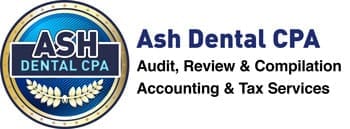Key Bookkeeping Terms Every Dentist Should Know

Bookkeeping
Nothing brings a growing dental practice to a screeching halt like cash flow problems. Basic bookkeeping errors can create a cascading effect, resulting in severe financial problems. As a dentist, you are an expert at your craft. You know all about keeping teeth healthy. Unfortunately, dentists are not normally aware of the needed steps in creating and maintaining an accurate bookkeeping system so that they can become fully aware of the true financial status of their dental practice.
As a dentist, here are a few bookkeeping terms that you should be aware of:
Cash Flow and Profit. There Is a Difference.
Dentists, and the staff that they rely upon to keep their books, are not typically aware of how to read and truly understand financial reports. When you ask for certain information for a particular time frame from your bookkeeper, you may be provided instead with profit figures. You may mistakenly believe that this represents the amount of cash available to you. But this profit number is not representing the available cash for purchases. This can lead you to mistakenly make purchases, incurring significant charges and overdraft fees.
Profit comes from revenue less expenses over a given time frame. The term “cash flow” refers to the money that moves to and from your business throughout the month. Your profits will be determined once you have completed a profit and loss statement. Once you complete your cash flow equation and factor in inventory, accounts receivable and depreciation expenses, you can determine your cash flow.
Chart of Accounts
An industry-standard chart of account is necessary for tracking the amount of money that your practice has spent or received, as well as for the preparation of financial reports. When you establish your accounting system, special accounts must be created based upon dental industry standards. Dentists commonly mistakenly use a general chart of accounts, resulting in an expensive mistake since you will not have the insight necessary to effectively streamline and grow your dental practice.
Closing the Books
You should be closing your books on a monthly basis. This activity includes the reconciliation of various accounts, preparation of your financial statements, and more. You should not be entering transactions after closing your books.
A common mistake that dental practices make is mistakenly entering transactions from a previous time period. This leads to adjustments and balances that do not match the financial reports or bank balance. Left undetected, this causes all future reports, cash figures, and tax documents to be incorrect. This is a costly mistake that can result in harsh IRS penalties.
Importance of Partnering with an Experienced Dental Accountant
When you work with an accountant who has a specialty in dental bookkeeping, you can be assured that you are fully aware of the financial condition of your practice. This means that your financial statements will meet IRS guidelines, General Acceptance Accounting Principles, and dental industry standards. Contact Ash Dental CPA to learn more about customizing your accounting services.
